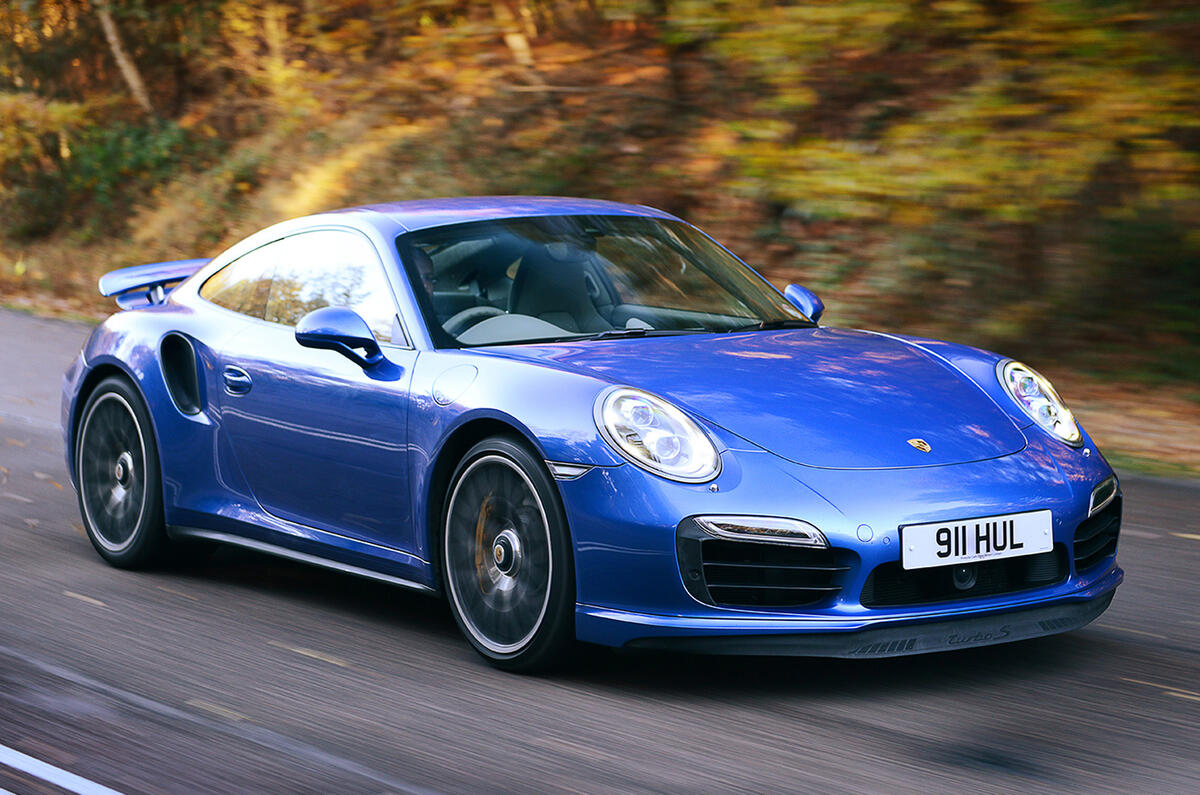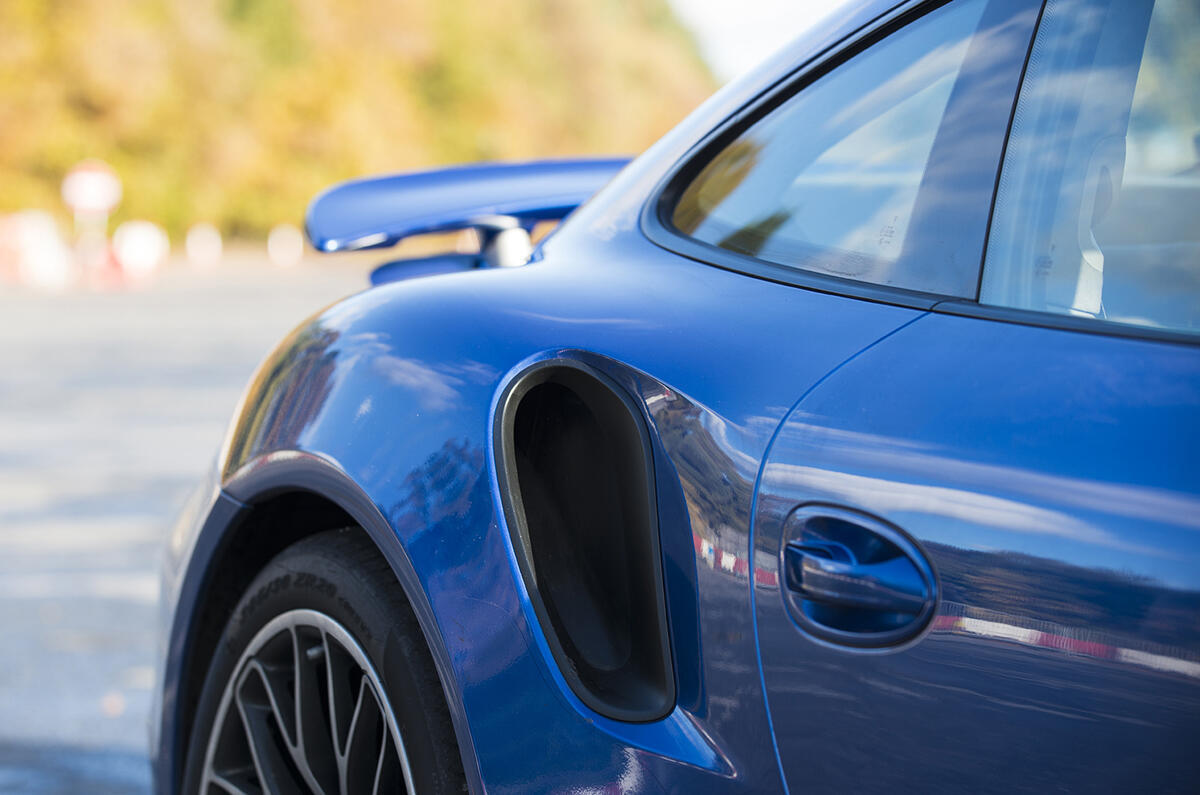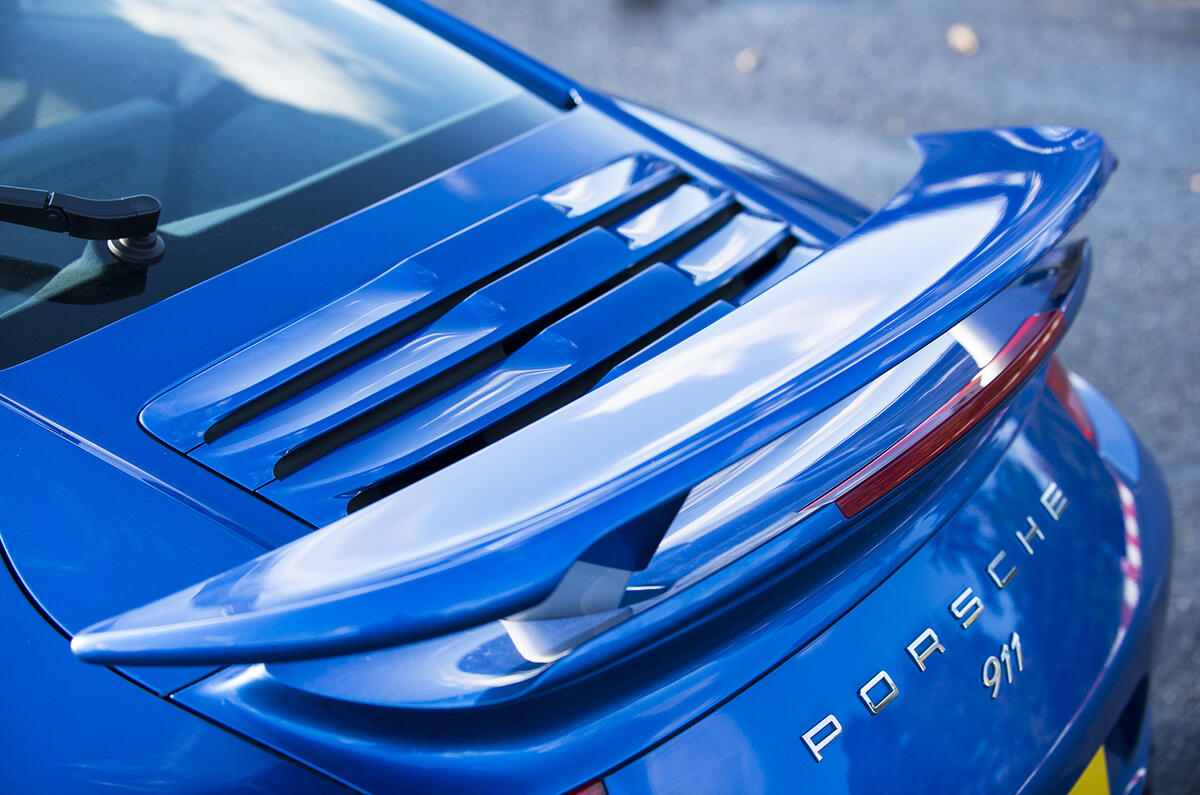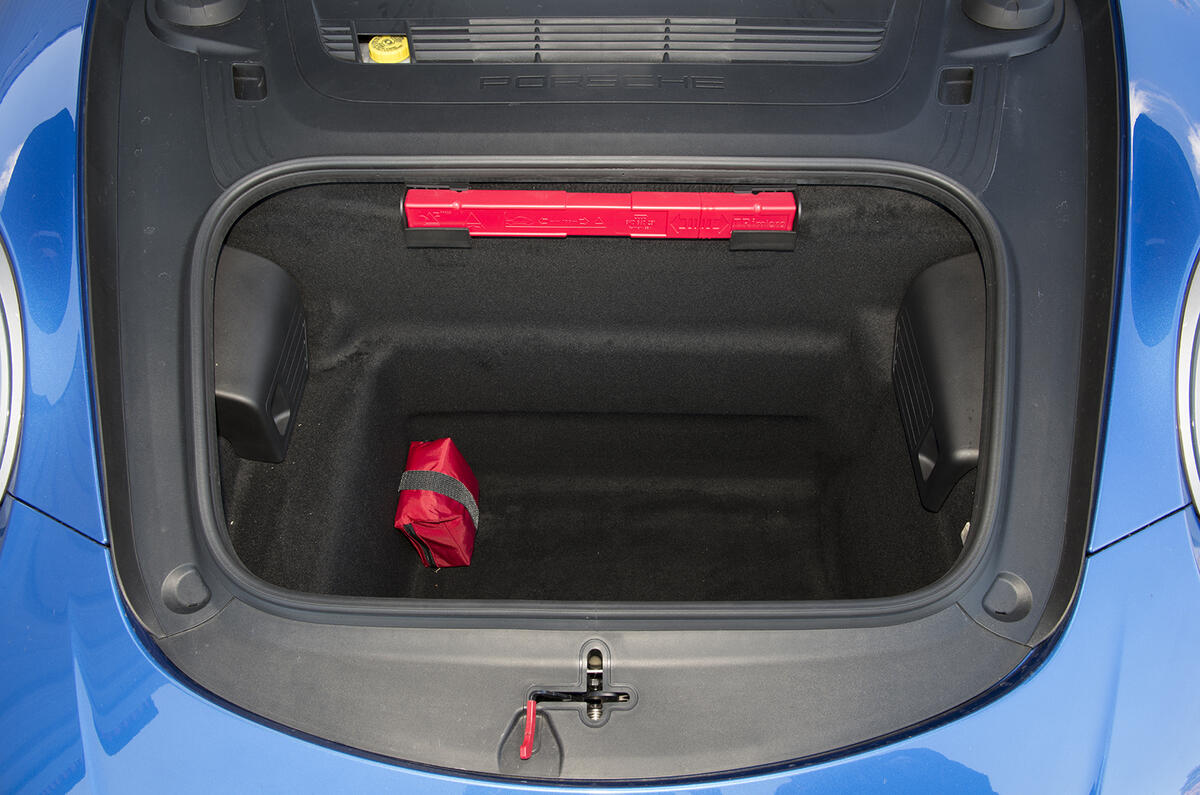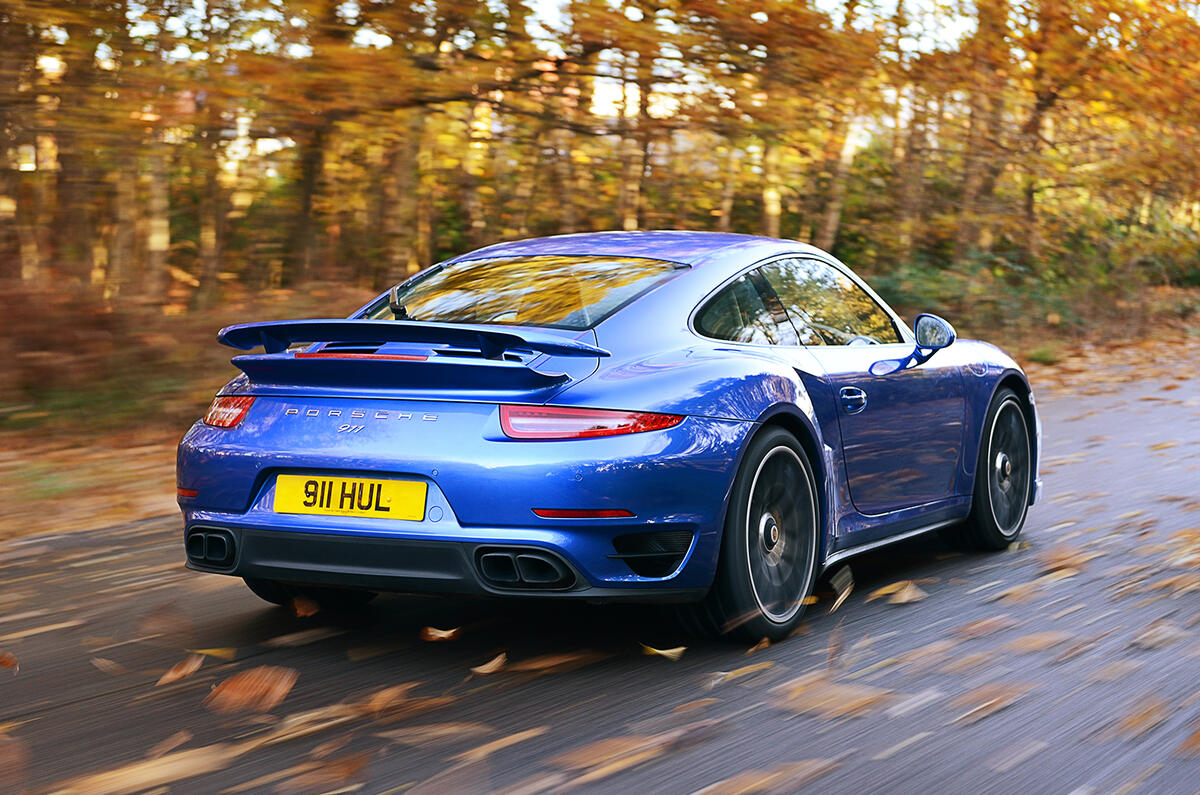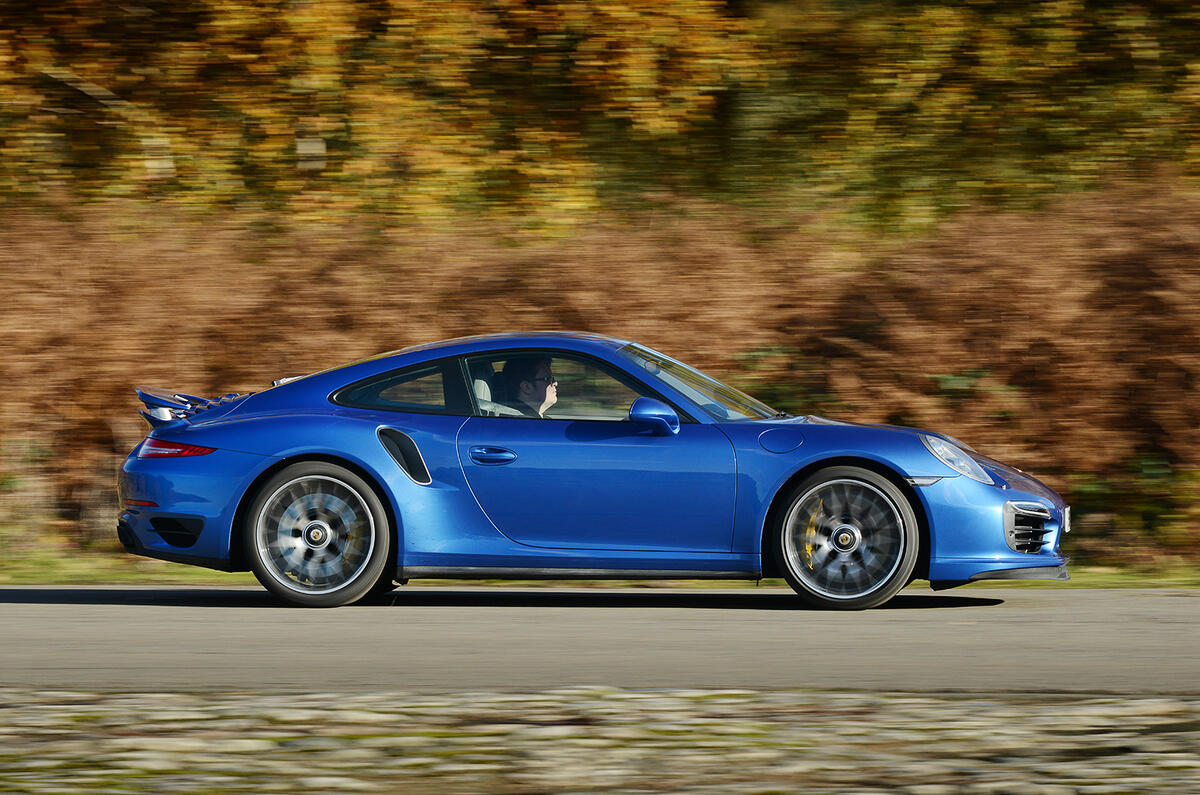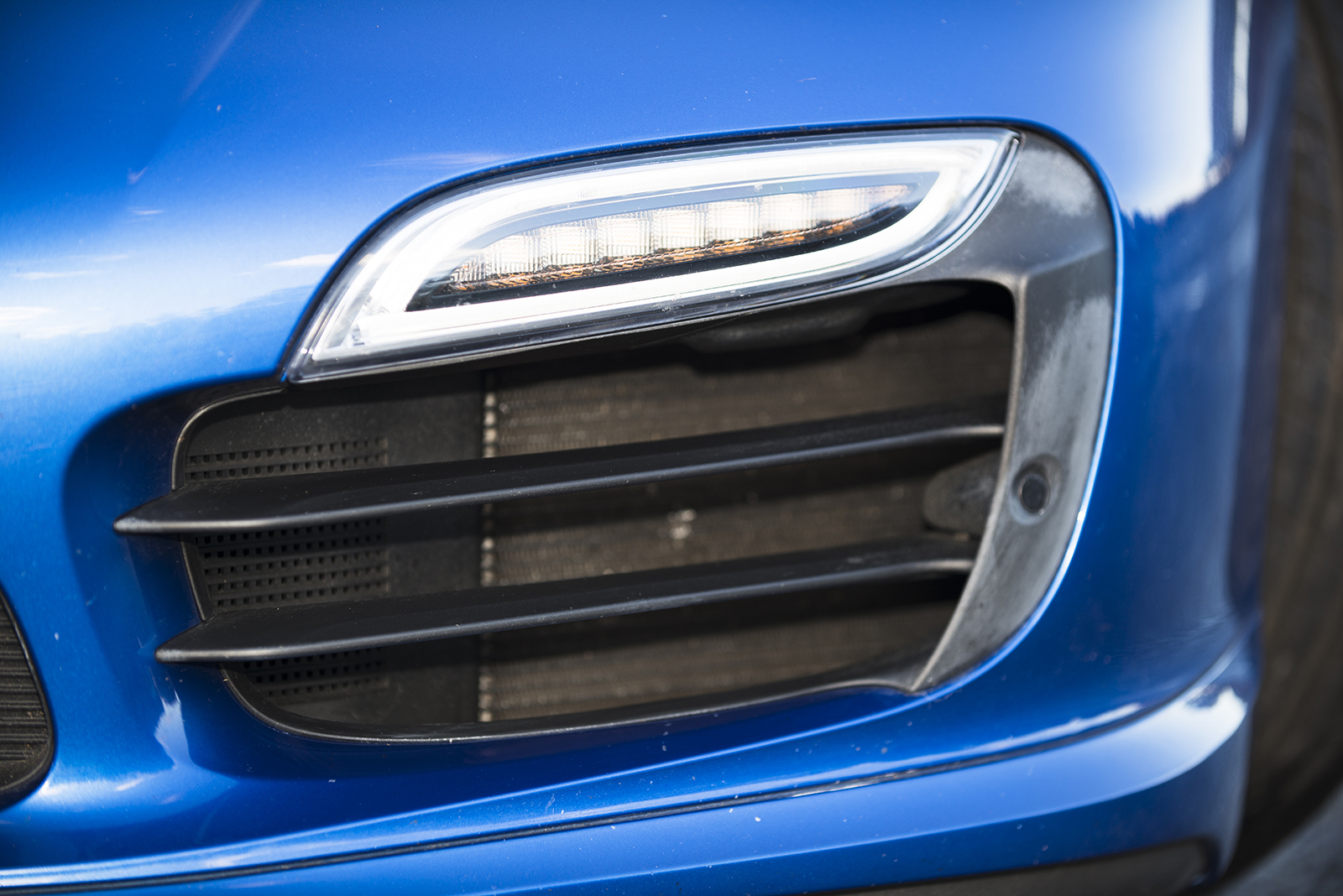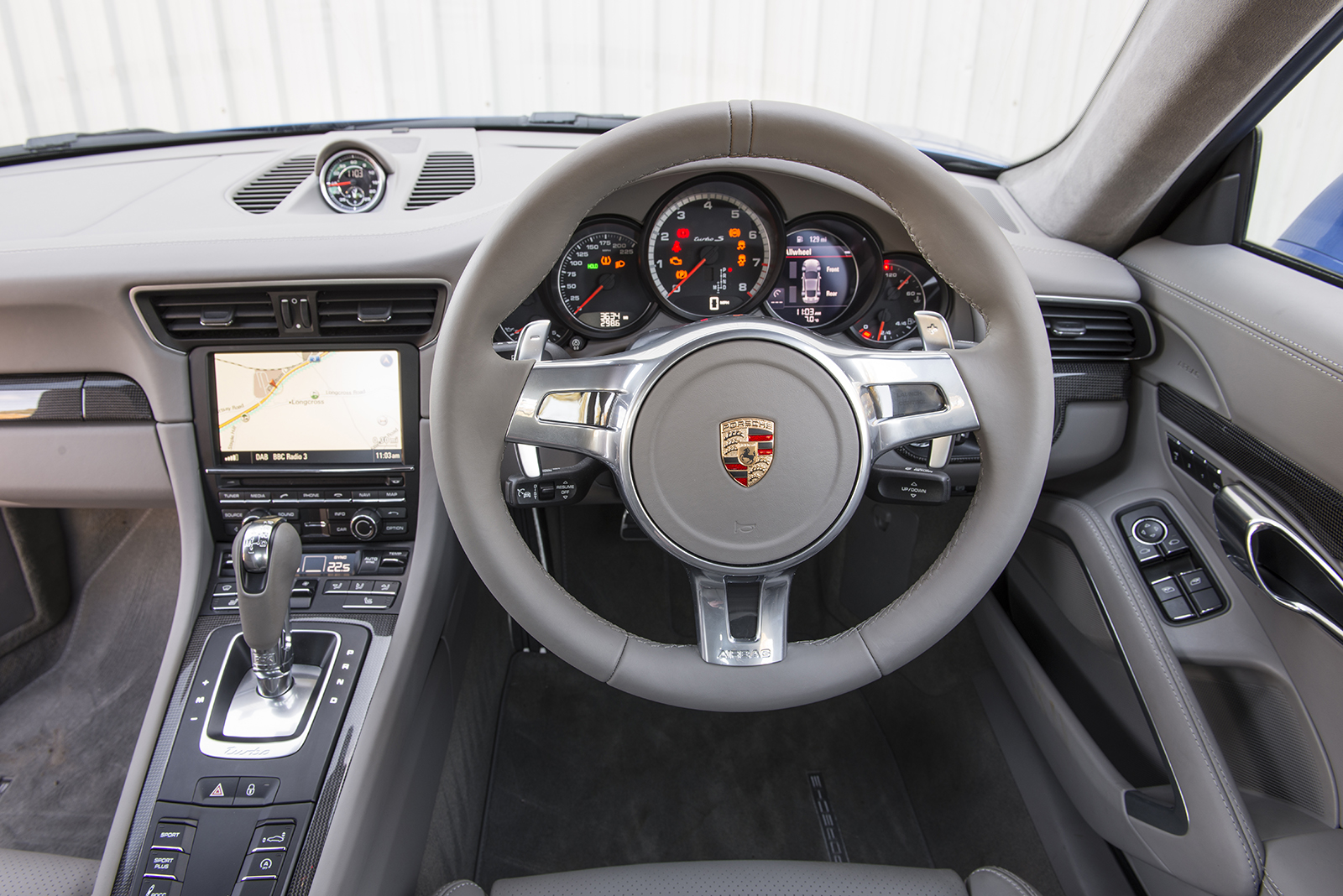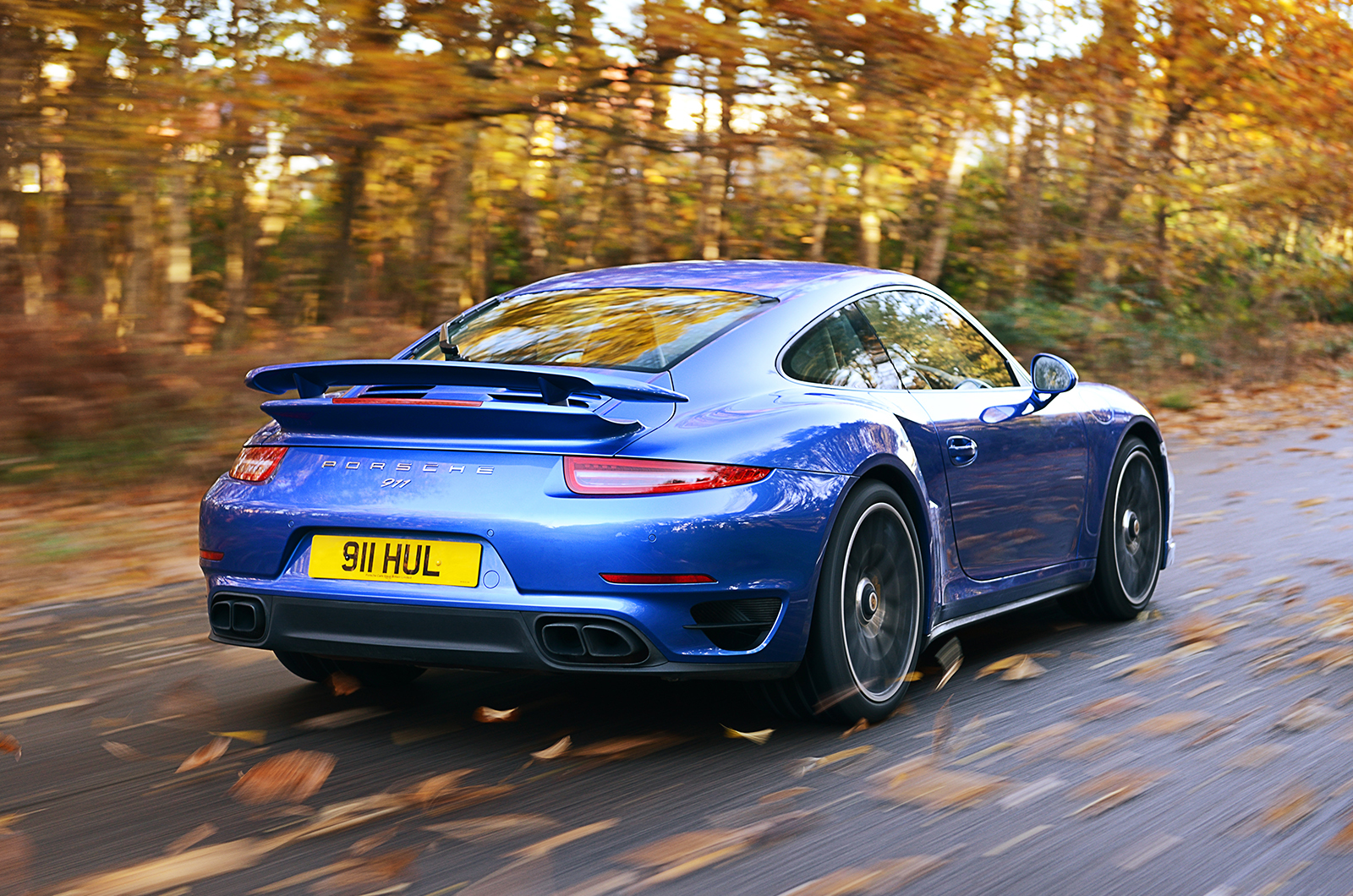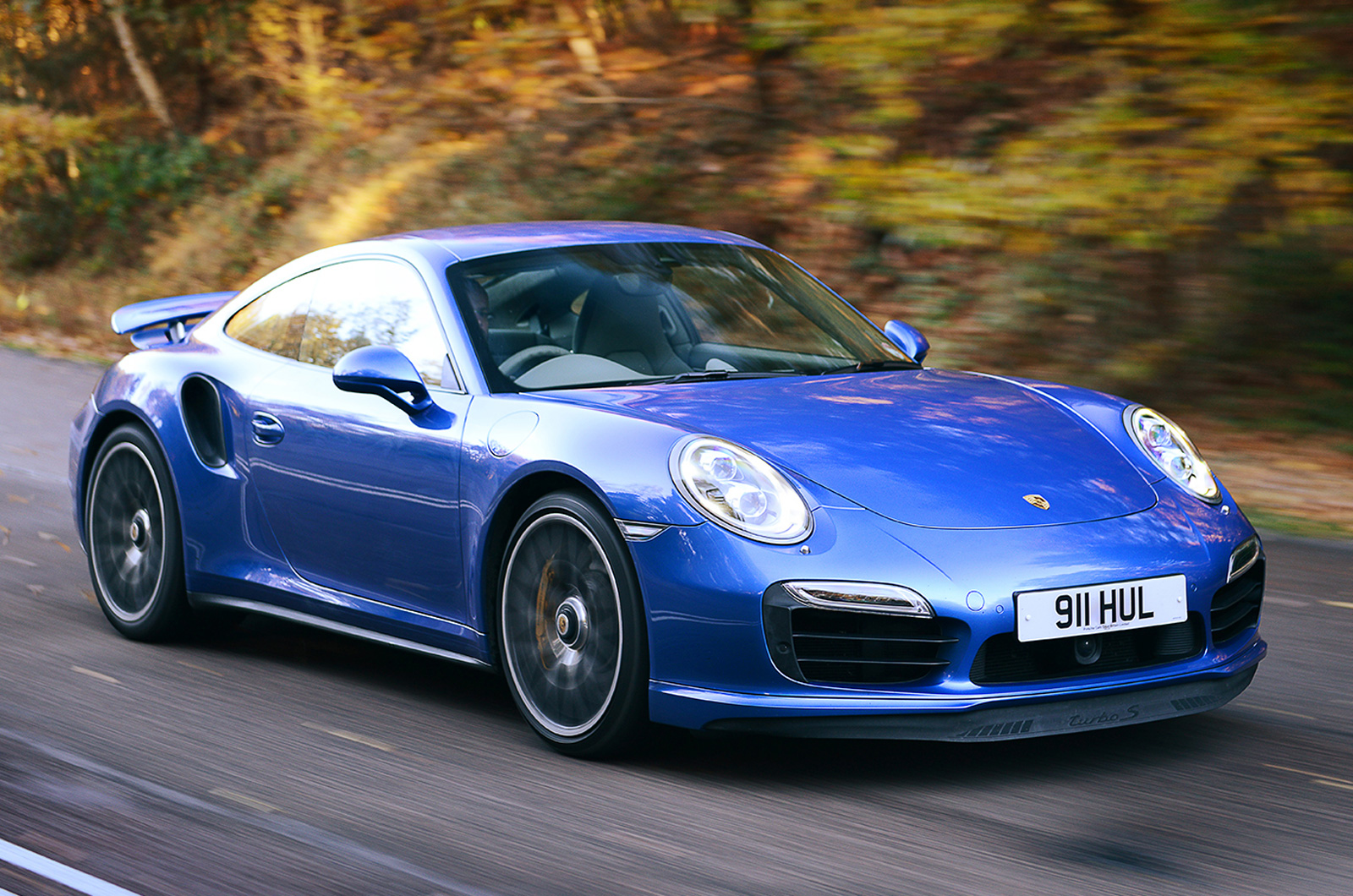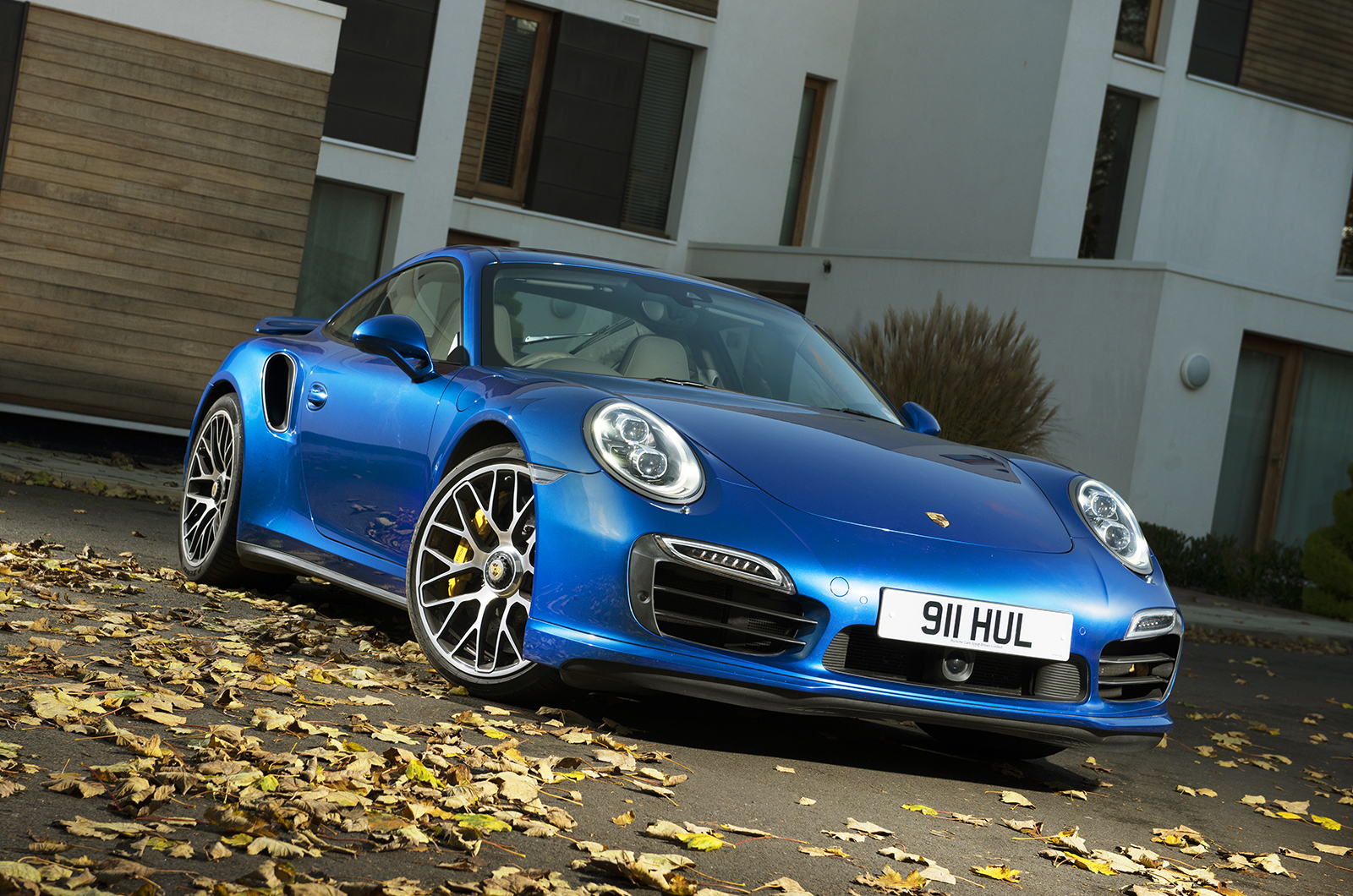The Porsche 911 Turbo, then. It’s not always our favourite flavour of Porsche 911, but it’s usually the most devastating.
If a 911 GT3 is about involvement, feel and motorsport-derived gratification, a 911 Turbo is about something very different. It’s for those who like to travel very quickly with minimal effort and ample safety and comfort, with a poised chassis beneath them.
The Turbo wasn’t always this way. Porsche set a theme with the first 911 Turbo, codenamed 930, of 1975. At first, the 3.0-litre car had 'only' 265bhp; these days a hot hatchback has more, and more gears. The Turbo had just four speeds, but the bodywork was widened, the tail spoiler was outrageous and the handling was pretty hairy.
By the time the 964-series 911 arrived in 1989, the 930 Turbo's power had swollen to 330bhp. The 964 Turbo eventually took this to 355bhp, while that car's replacement, the 993, was the first to have an even faster Turbo S variant and four-wheel drive.
Since the advent of a four-wheel-drive Porsche 911 Turbo, however, these Porsches have been getting faster, more stable and, you might argue, more sanitised, leaving other 911s to provide the kicks while these forced-induction models deliver the technical highlights in an easy-to-live-with yet apocalyptically fast package.
Think of every modern 911 Turbo as a Porsche 959 realised, if not quite for the masses then at least for a broader subset than were able to buy the limited-run supercar, with all the technology you could hope for and all the daily usability you could need.


